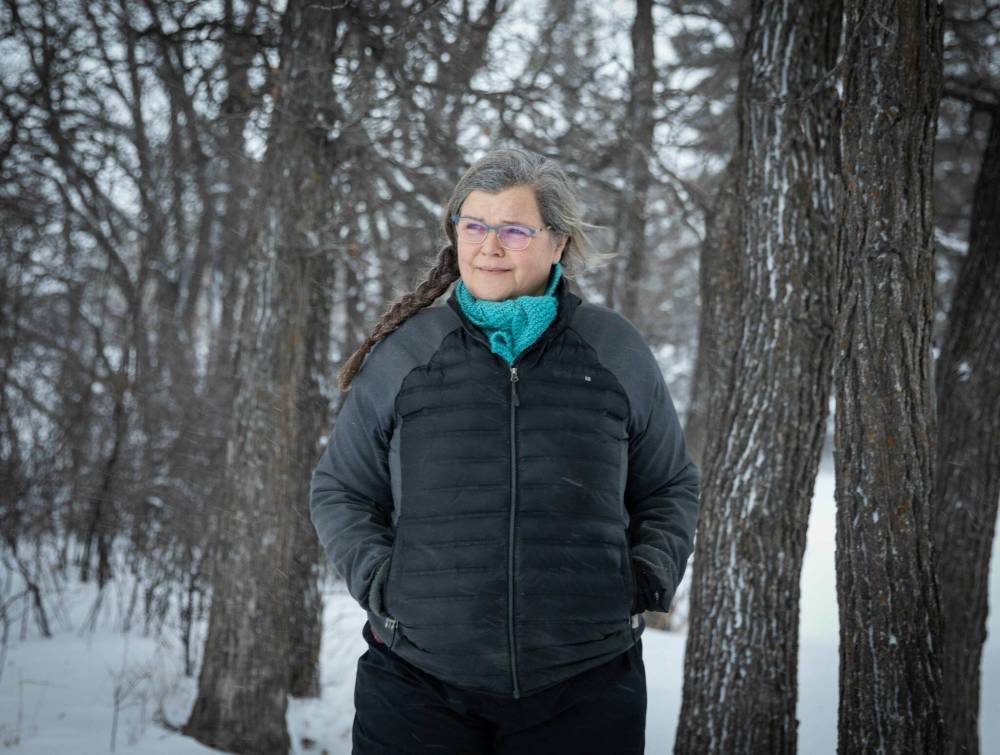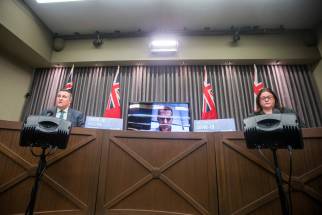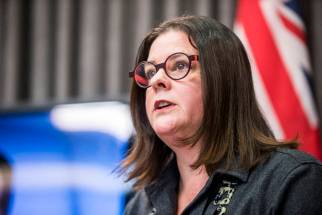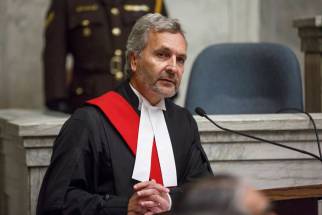Getting to the root of the problem Red tape blamed for hindering tree-planting efforts on city property
Read this article for free:
or
Already have an account? Log in here »
To continue reading, please subscribe:
Monthly Digital Subscription
$0 for the first 4 weeks*
- Enjoy unlimited reading on winnipegfreepress.com
- Read the E-Edition, our digital replica newspaper
- Access News Break, our award-winning app
- Play interactive puzzles
*No charge for 4 weeks then price increases to the regular rate of $19.00 plus GST every four weeks. Offer available to new and qualified returning subscribers only. Cancel any time.
Monthly Digital Subscription
$4.75/week*
- Enjoy unlimited reading on winnipegfreepress.com
- Read the E-Edition, our digital replica newspaper
- Access News Break, our award-winning app
- Play interactive puzzles
*Billed as $19 plus GST every four weeks. Cancel any time.
To continue reading, please subscribe:
Add Free Press access to your Brandon Sun subscription for only an additional
$1 for the first 4 weeks*
*Your next subscription payment will increase by $1.00 and you will be charged $16.99 plus GST for four weeks. After four weeks, your payment will increase to $23.99 plus GST every four weeks.
Read unlimited articles for free today:
or
Already have an account? Log in here »
Hey there, time traveller!
This article was published 04/01/2022 (1439 days ago), so information in it may no longer be current.
Concerns are growing that excessive red tape is thwarting efforts to get trees planted on city property, despite Winnipeg’s goal to get a million in the ground within the next two decades.
It can take volunteers many weeks, or even months, to secure approvals from up to seven different city departments to launch one tree planting project on city-owned land — a “bureaucratic nightmare” that threatens to discourage volunteers, said Coun. Janice Lukes.
The Waverley West councillor is calling for city officials to create a clear checklist of steps needed to obtain planting approval and to improve city communication to expedite such requests.
“There’s no checklist, there’s no system… that is given to the volunteers so they know what to do, who they should call. Instead, they’re left to flounder and try to figure it out themselves. So, what happens is countless emails go back and forth,” said Lukes.
“There’s no checklist, there’s no system… that is given to the volunteers so they know what to do, who they should call. Instead, they’re left to flounder and try to figure it out themselves.” – Coun. Janice Lukes
The councillor said she’s assisted with tree planting efforts on city property that required more than 60 email exchanges. Lukes said the steps to clear the way for a project vary, depending on the exact location involved.
Planting projects can require clearances from the city’s parks, forestry, naturalist, water and waste, and communications departments, while Indigenous relations will also be notified when a new name or historical marker is involved, said Lukes.
She hopes her motion to establish a simplified approval process will be completed by the spring, arguing it’s too often left to councillors to help groups navigate a “cumbersome” system.
“I don’t have time to walk through the bureaucratic nightmare and get the darn trees planted,” she said.
Lukes said the delays are particularly concerning now, as the city works to get one million new trees planted on private and public property by the time its population reaches one million people, which is expected around 2040.
“I don’t have time to walk through the bureaucratic nightmare and get the darn trees planted.” – Coun. Janice Lukes
A consultant, who is helping to implement a major donation toward the One Million Tree Challenge, said while she applauds the city’s work to enhance its urban forest, she agrees there are too many hurdles to expanding the canopy on public land.
“When you put out a call for the community to participate in a million tree challenge, you want to make it easy for them. That needs to be, first and foremost, (a clear) process… The city administration seems to have so many roadblocks up that it makes it almost impossible to want to work with them,” said Louise May, a consultant for Telpay.
The Winnipeg-based company announced a donation of up to $250,000 for the tree challenge in December 2019, which has led to 35,000 trees being added to the canopy or given away to private planters, May said.
While an official One Million Tree Challenge counter notes 17,469 trees have been planted so far, May said not everyone who picks up a tree to plant on private land registers that they’ve done so.
Telpay has planted just 200 trees on city land since joining the challenge, specifically at Elzéar Goulet Park in 2020, a project that proved costly to set up, said May.

“We had to purchase the trees directly from the city’s nursery stock. For 200 trees, it cost us over $12,000 to put those trees in, purchasing them, having the City of Winnipeg facilitate it and that’s just too much,” said May.
She said elected officials had to address many bureaucratic issues to get the work done.
May said she supports the call for a simplified process, which she hopes will help the city expedite its tree planting efforts and combat climate change.
“We cannot take 20 years to do this. We have to take five to 10 years to do this and that’s the clock I’m on. I’m trying to prove that we can easily do it if we do it the right way,” May said.
In an emailed statement, a City of Winnipeg spokesperson said careful planning is needed to ensure any new additions to the urban forest survive in the long term and don’t cause unintended problems.
“We cannot take 20 years to do this. We have to take five to 10 years to do this and that’s the clock I’m on. I’m trying to prove that we can easily do it if we do it the right way.” – Consultant Louise May
“Consultation between city departments ensures that the desired location is appropriate and will not interfere with other city services and amenities,” said spokesperson Ken Allen.
The statement said city staff “work alongside volunteers” to assist with the process.
An advocate to preserve and expand the local canopy said the municipal government can’t stop at making it easier to plant new trees.
“Reducing barriers for resident-led initiatives like this is a good thing but… this is really kind of a Band-Aid on a gaping wound. It would be far more efficient if urban forestry just had a sufficient budget to do all the reforestation in the first place,” said Emma Durand-Wood, a member of the Trees Please Winnipeg Coalition.
joyanne.pursaga@freepress.mb.ca
Twitter: @joyanne_pursaga

Born and raised in Winnipeg, Joyanne loves to tell the stories of this city, especially when politics is involved. Joyanne became the city hall reporter for the Winnipeg Free Press in early 2020.
Our newsroom depends on a growing audience of readers to power our journalism. If you are not a paid reader, please consider becoming a subscriber.
Our newsroom depends on its audience of readers to power our journalism. Thank you for your support.










